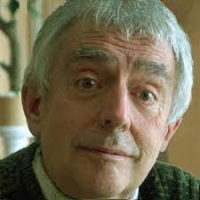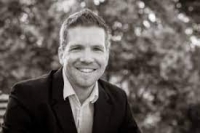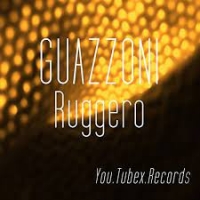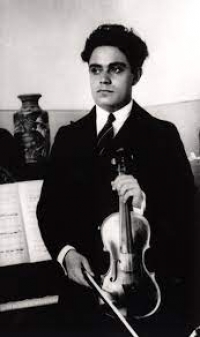Latest Sheet Music
Cyndi Lauper

Cynthia Ann Stephanie "Cyndi" Lauper (born June 22, 1953) is an American Grammy- and Emmy-award winning singer-songwriter and actress. She achieved success in the mid-1980s with the release of the album She's So Unusual and became the first artist to have four top-five singles released from one album. Lauper has released 11 albums and over 40 singles, and as of 2008 had sold more than 25 million albums worldwide. She continues to tour the world, often in support of human rights.
Lauper recorded an album of all new material during 2007. The working title given to the project was Savoir-faire, but she announced at her Perth, Australia concert in February 2008 that the name of the album was Bring Ya to the Brink and that it would be released in the spring. In preparation for the album, Lauper visited England and France during summer 2007 to write for the album and wrote songs with dance artists The Scumfrog, Basement Jaxx, Digital Dog, Dragonette, Kleerup and others. She described it as a mainly dance album with good rhythm. Most of the album was recorded in Sweden.
In December 2008, Bring Ya to the Brink was nominated for a Grammy Award for Best Electronic/Dance Album. Lauper also signed a book deal for an autobiography that is scheduled to come out at the end of 2009 or early 2010.
Lauper recorded an album of all new material during 2007. The working title given to the project was Savoir-faire, but she announced at her Perth, Australia concert in February 2008 that the name of the album was Bring Ya to the Brink and that it would be released in the spring. In preparation for the album, Lauper visited England and France during summer 2007 to write for the album and wrote songs with dance artists The Scumfrog, Basement Jaxx, Digital Dog, Dragonette, Kleerup and others. She described it as a mainly dance album with good rhythm. Most of the album was recorded in Sweden.
In December 2008, Bring Ya to the Brink was nominated for a Grammy Award for Best Electronic/Dance Album. Lauper also signed a book deal for an autobiography that is scheduled to come out at the end of 2009 or early 2010.
Bradley Nowell
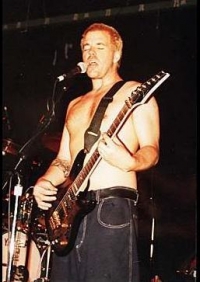
Bradley James Nowell (February 22, 1968 – May 25, 1996) was an American musician and the lead singer and guitarist of the ska punk band Sublime.Born and raised in Belmont Shore, Long Beach, California, Nowell developed an interest in music at a young age. His father took him on a trip to Jamaica during his childhood years, which exposed him to reggae and dancehall music; he then gained a strong interest in rock music once he learned how to play guitar. Nowell played in various bands until forming Sublime with bassist Eric Wilson and drummer Bud Gaugh, whom he had met while attending California State University at Long Beach. In his lifetime, Sublime released the albums 40oz. to Freedom and Robbin' the Hood to critical and commercial success.
Traditional

Helmut Eisel
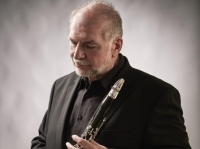
Helmut Eisel (born June 2, 1955 in Saarbrücken ) is a German clarinetist and composer .Helmut Eisel, who studied mathematics and worked as a software developer, learned the basics of playing the clarinet from his grandfather. During his studies (diploma 1985) he played in various jazz bands and gained his first experience as an arranger . The decisive factor was the meeting with Giora Feidman in 1989, with whom he has worked again and again in workshops and concerts ever since. Various CDs document the collaboration between the two clarinetists, including the Feidman CD The Spirit of Klezmer (2008), on which Helmut Eisel can be heard with two of his own titles.
Rodolphe Kreutzer
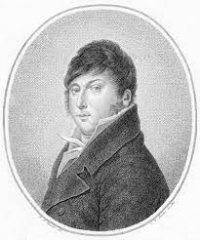
Rodolphe Kreutzer (15 November 1766 – 6 January 1831) was a French violinist, teacher, conductor, and composer of forty French operas, including La mort d'Abel (1810).He is probably best known as the dedicatee of Beethoven's Violin Sonata No. 9, Op. 47 (1803), known as the Kreutzer Sonata, though he never played the work. Kreutzer made the acquaintance of Beethoven in 1798, when at Vienna in the service of the French ambassador, Jean-Baptiste Bernadotte (later King of Sweden and Norway). Beethoven originally dedicated the sonata to George Bridgetower, the violinist at its first performance, but after a quarrel he revised the dedication in favour of Kreutzer.
Alexander Pappas

American made, Australian raised, Alexander Pappas reimagines Inspirational music with his unique infusion of Alt-Rock and Pop influences.
Louis Prima
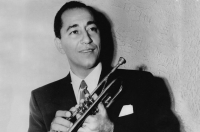
Louis Leo Prima (December 7, 1910 – August 24, 1978) was an American singer, actor, songwriter, bandleader, and trumpeter. While rooted in New Orleans jazz, swing music, and jump blues, Prima touched on various genres throughout his career: he formed a seven-piece New Orleans-style jazz band in the late 1920s, fronted a swing combo in the 1930s and a big band group in the 1940s, helped to popularize jump blues in the late 1940s and early to mid 1950s, and performed frequently as a Vegas lounge act beginning in the 1950s.
Alan Keown
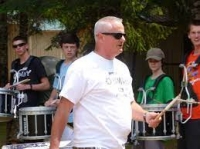
Drum Camp is a week filled with intense learning, fun activities, and the making of new friends from throughout the west coast.The focus of our 35th Annual Camp will be rudimental drumming and front ensemble playing by choosing one track or the other. This is accomplished through a highly structured curriculum unlike that of any other percussion camp in the nation.Mornings are spent in small groups working on the Rudiment Curriculum, afternoons will be used for individual drumlins rehearsals (we generally have 6-7 drumlines and a front ensemble), and evenings bring fun activities like drum circles, rudiment contest and solo night.
José Barros
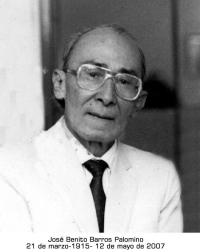
José Benito Barros or simply José Barros was a prominent Colombian musician, and composer of more than 800 songs in genres including cumbia, porro, merengue, currulao, paseo, bolero and tango.
Scott Joplin

Scott Joplin (between June 1867 and January 1868 – April 1, 1917) was an American musician and composer of ragtime music. He remains the best-known ragtime figure and is regarded as one of the three most important composers of classic ragtime, along with James Scott and Joseph Lamb, and also a precursor to Stride Piano. Decades after his death, his music enjoyed a considerable surge of popularity and critical respect in the 1970s, especially for his most famous composition, "The Entertainer."
Even at the time of publication, Joplin's publisher John Stark was claiming that the rags had obtained classical status, and "lifted ragtime from its low estate and lined it up with Beethoven and Bach".
Even at the time of publication, Joplin's publisher John Stark was claiming that the rags had obtained classical status, and "lifted ragtime from its low estate and lined it up with Beethoven and Bach".
Antonio Carlos Jobim

Antonio Carlos Brasileiro de Almeida Jobim (January 25, 1927 in Rio de Janeiro – December 8, 1994 in New York City), also known as Tom Jobim, was a Grammy Award-winning Brazilian songwriter, composer, arranger, singer, and pianist/guitarist. A primary force behind the creation of the bossa nova style, Jobim is acknowledged as one of the most influential popular composers of the 20th century. His songs have been performed by many singers and instrumentalists within Brazil and internationally.
The skatalites

The Skatalites are a ska band from Jamaica. They played initially between 1963 and 1965, and recorded many of their best known songs in the period, including "Guns of Navarone."
Bernhard Romberg
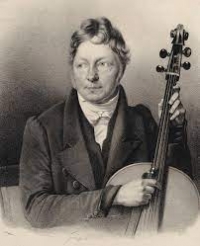
Bernhard Heinrich Romberg (November 13, 1767 – August 13, 1841) was a German cellist and composerRomberg was born in Dinklage. His father, Anton Romberg, played the bassoon and cello and gave Bernhard his first cello lessons. He first performed in public at the age of seven. In addition to touring Europe with his cousin Andreas Romberg, Bernhard Romberg also joined the Münster Court Orchestra.
Rose Philippe
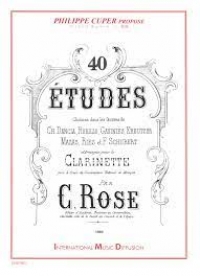
Skills, Arranger, Composer ; Website, Partitions gratuites pour chorales ; Followers, members follow this artist. (575 PDF)Pascal Millon.
Ludwig Van Beethhoven
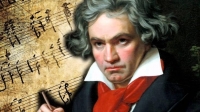
Ludwig van Beethoven (/ˈlʊdvɪɡ væn ˈbeɪt(h)oʊvən/ (About this soundlisten); German: (About this soundlisten); baptised 17 December 1770 – 26 March 1827) was a German composer and pianist. A crucial figure in the transition between the classical and romantic eras in classical music, he remains one of the most recognized and influential musicians of this period, and is considered to be one of the greatest composers of all time.
Beethoven was born in Bonn, the capital of the Electorate of Cologne, and part of the Holy Roman Empire. He displayed his musical talents at an early age and was vigorously taught by his father Johann van Beethoven, and was later taught by composer and conductor Christian Gottlob Neefe. At age 21, he moved to Vienna and studied composition with Joseph Haydn. Beethoven then gained a reputation as a virtuoso pianist, and was soon courted by Prince Lichnowsky for compositions, which resulted in Opus 1 in 1795.
Beethoven was born in Bonn, the capital of the Electorate of Cologne, and part of the Holy Roman Empire. He displayed his musical talents at an early age and was vigorously taught by his father Johann van Beethoven, and was later taught by composer and conductor Christian Gottlob Neefe. At age 21, he moved to Vienna and studied composition with Joseph Haydn. Beethoven then gained a reputation as a virtuoso pianist, and was soon courted by Prince Lichnowsky for compositions, which resulted in Opus 1 in 1795.
Lady Gaga

Lady Gaga (born Stefani Joanne Angelina Germanotta on March 28, 1986) is an American recording artist. She began performing in the rock music scene of New York City's Lower East Side. She soon signed with Streamline Records, an imprint of Interscope Records, upon its establishment in 2007. During her early time at Interscope, she worked as a songwriter for fellow label artists and captured the attention of Akon, who recognized her vocal abilities, and had her also sign to his own label, Kon Live Distribution.
Her debut album, The Fame, was released on August 19, 2008. In addition to receiving generally positive reviews, it reached number-one in Canada, Austria, Germany, and Ireland and topped the Billboard Top Electronic Albums chart. Its first two singles, "Just Dance" and "Poker Face", co-written and co-produced with RedOne, became international number-one hits, topping the Hot 100 in the United States as well as other countries. The album later earned a total of six Grammy Award nominations and won awards for Best Electronic/Dance Album and Best Dance Recording. In early 2009, after having opened for New Kids on the Block and the Pussycat Dolls, she embarked on her first headlining tour, The Fame Ball Tour. By the fourth quarter of 2009, she released her second studio album The Fame Monster, with the global chart-topping lead single "Bad Romance", as well as having embarked on her second headlining tour of the year, The Monster Ball Tour.
Lady Gaga is inspired by glam rock musicians such as David Bowie and Freddie Mercury, as well as pop music artists such as Madonna and Michael Jackson. She has also stated fashion is a source of inspiration for her songwriting and performances. To date, she has sold over eight million albums and over thirty-five million singles worldwide.
Her debut album, The Fame, was released on August 19, 2008. In addition to receiving generally positive reviews, it reached number-one in Canada, Austria, Germany, and Ireland and topped the Billboard Top Electronic Albums chart. Its first two singles, "Just Dance" and "Poker Face", co-written and co-produced with RedOne, became international number-one hits, topping the Hot 100 in the United States as well as other countries. The album later earned a total of six Grammy Award nominations and won awards for Best Electronic/Dance Album and Best Dance Recording. In early 2009, after having opened for New Kids on the Block and the Pussycat Dolls, she embarked on her first headlining tour, The Fame Ball Tour. By the fourth quarter of 2009, she released her second studio album The Fame Monster, with the global chart-topping lead single "Bad Romance", as well as having embarked on her second headlining tour of the year, The Monster Ball Tour.
Lady Gaga is inspired by glam rock musicians such as David Bowie and Freddie Mercury, as well as pop music artists such as Madonna and Michael Jackson. She has also stated fashion is a source of inspiration for her songwriting and performances. To date, she has sold over eight million albums and over thirty-five million singles worldwide.
Tchaikovsky

Pyotr Il'yich Tchaikovsky (May 7 1840 â November 6 1893) was a Russian composer of the Romantic era. While not part of the nationalistic music group known as "The Five", Tchaikovsky wrote music which, in the opinion of Harold Schonberg, was distinctly Russian: plangent, introspective, with modally-inflected melody and harmony.
Aesthetically, Tchaikovsky remained open to all aspects of Saint Petersburg musical life. He was impressed by Serov and Balakirev as well as the classical values upheld by the conservatory. Both the progressive and conservative camps in Russian music at the time attempted to win him over. Tchaikovsky charted his compositional course between these two factions, retaining his individuality as a composer as well as his Russian identity. In this he was influenced by the ideals of his teacher Nikolai Rubinstein and Nikolai's brother Anton.
Tchaikovsky's musical cosmopolitanism led him to be favored by many Russian music-lovers over the "Russian" harmonies and styles of Mussorgsky, Borodin and Rimsky-Korsakov.
Nonetheless he frequently adapted Russian traditional melodies and dance forms in his music, which enhanced his success in his home country. The success in St. Petersburg at the premiere of his Third Orchestral Suite may have been due in large part to his concluding the work with a polonaise. He also used a polonaise for the final movement of his Third Symphony.
Aesthetically, Tchaikovsky remained open to all aspects of Saint Petersburg musical life. He was impressed by Serov and Balakirev as well as the classical values upheld by the conservatory. Both the progressive and conservative camps in Russian music at the time attempted to win him over. Tchaikovsky charted his compositional course between these two factions, retaining his individuality as a composer as well as his Russian identity. In this he was influenced by the ideals of his teacher Nikolai Rubinstein and Nikolai's brother Anton.
Tchaikovsky's musical cosmopolitanism led him to be favored by many Russian music-lovers over the "Russian" harmonies and styles of Mussorgsky, Borodin and Rimsky-Korsakov.
Nonetheless he frequently adapted Russian traditional melodies and dance forms in his music, which enhanced his success in his home country. The success in St. Petersburg at the premiere of his Third Orchestral Suite may have been due in large part to his concluding the work with a polonaise. He also used a polonaise for the final movement of his Third Symphony.
Carl Maria von Weber
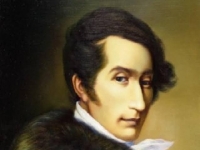
Carl Maria Friedrich Ernst von Weber was a German composer, conductor, pianist, guitarist and critic, and was one of the first significant composers of the Romantic school.
Andrew Lloyd Webber

Andrew Lloyd Webber, Baron Lloyd-Webber (born 22 March 1948) is an English composer of musical theatre, the elder son of organist William Lloyd Webber and brother of the cellist Julian Lloyd Webber. Lloyd Webber started composing at the age of six, and published his first piece at the age of nine.
Lloyd Webber has achieved great popular success, with several musicals that have run for more than a decade both in the West End and on Broadway. He has composed 13 musicals, a song cycle, a set of variations, two film scores, and a Latin Requiem Mass. He has also gained a number of honours, including a knighthood in 1992, followed by a peerage from the British Government for services to Music, seven Tony Awards (and 40 nominations), three Grammy Awards (with an additional 60 nominations), an Academy Award (two other nominations), seven Olivier Awards (with 100 nominations), a Golden Globe, and the Kennedy Center Honors in 2006. Several of his songs, notably "The Music of the Night" from The Phantom of the Opera, "I Don't Know How to Love Him" from Jesus Christ Superstar, "Don't Cry for Me, Argentina" from Evita, "Any Dream Will Do" from Joseph and the Amazing Technicolor Dreamcoat and "Memory" from Cats have been widely recorded and were hits outside of their parent musicals. His company, the Really Useful Group, is one of the largest theatre operators in London.
Producers in several parts of the UK have staged productions, including national tours, of Lloyd Webber's musicals under licence from the Really Useful Group. According to britishhitsongwriters.com, he is the one hundredth most successful songwriter in U.K. singles chart history, based on weeks that his compositions have spent on the chart.
Lloyd Webber has achieved great popular success, with several musicals that have run for more than a decade both in the West End and on Broadway. He has composed 13 musicals, a song cycle, a set of variations, two film scores, and a Latin Requiem Mass. He has also gained a number of honours, including a knighthood in 1992, followed by a peerage from the British Government for services to Music, seven Tony Awards (and 40 nominations), three Grammy Awards (with an additional 60 nominations), an Academy Award (two other nominations), seven Olivier Awards (with 100 nominations), a Golden Globe, and the Kennedy Center Honors in 2006. Several of his songs, notably "The Music of the Night" from The Phantom of the Opera, "I Don't Know How to Love Him" from Jesus Christ Superstar, "Don't Cry for Me, Argentina" from Evita, "Any Dream Will Do" from Joseph and the Amazing Technicolor Dreamcoat and "Memory" from Cats have been widely recorded and were hits outside of their parent musicals. His company, the Really Useful Group, is one of the largest theatre operators in London.
Producers in several parts of the UK have staged productions, including national tours, of Lloyd Webber's musicals under licence from the Really Useful Group. According to britishhitsongwriters.com, he is the one hundredth most successful songwriter in U.K. singles chart history, based on weeks that his compositions have spent on the chart.
Jazz Standard
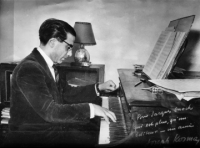
Autumn Leaves" is a popular song and jazz standard composed by Joseph Kosma with original lyrics by Jacques Prévert in French, and later by Johnny Mercer in English. An instrumental version by pianist Roger Williams was a #1 best-seller in the USA Billboard charts of 1955.
The Darkness

The Darkness are a British rock band formed in Lowestoft, England, in 2000. The band consists of Justin Hawkins, his brother Dan Hawkins, Frankie Poullain and Rufus Tiger Taylor. The Darkness came to prominence with the release of their debut album, Permission to Land, in 2003.
Giles Farnaby
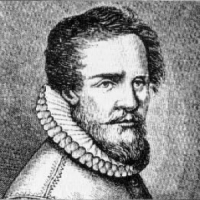
Giles Farnaby (c. 1563 – November 1640) was an English composer and virginalist whose music spans the transition from the Renaissance to the Baroque period.Giles Farnaby was born about 1563, perhaps in Truro, Cornwall or near London. His father, Thomas, was a Cittizen and Joyner of London, and Giles may have been related to Thomas Farnaby (c. 1575–1647), the famous schoolmaster of Kent, whose father was a carpenter. But it was his cousin Nicholas Farnaby (c. 1560–1630), who may have turned him to music. Nicholas was a virginal maker, at this time a generic word that included the entire family of plucked keyboard instruments: the harpsichord, virginal, muselar and doubtless the clavichord, and it is for these instruments that Farnaby's compositions are best known. Like his father however, Giles trained as a joiner or cabinet-maker, starting his apprenticeship in about 1583, and gave this trade as his occupation for most of his life.
Samurai Champloo

Break-dancing but fierce warrior Mugen has to deal with the cold-blooded and conceited Jin, a samurai who believes he is above all. These sworn enemies are brought together by Fuu for a special task.
Leo ornstein
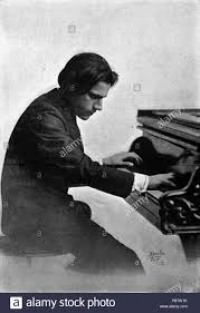
Leo Ornstein (born Лев Орнштейн, Lev Ornshteyn) (c. December 11, 1895 – February 24, 2002) was a leading American experimental composer and pianist of the early twentieth century. His performances of works by avant-garde composers and his own innovative and even shocking pieces made him a cause célèbre on both sides of the Atlantic.Ornstein was the first important composer to make extensive use of the tone cluster. As a pianist, he was considered a world-class talent. By the mid-1920s, he had walked away from his fame and soon disappeared from popular memory. Though he gave his last public concert before the age of forty, he continued writing music for another half-century and beyond. Largely forgotten for decades, he was rediscovered in the mid-1970s. Ornstein completed his eighth and final piano sonata in September 1990 at the age of ninety-four, making him the oldest published composer in history (a mark since passed by Elliott Carter).
W.A. Mozart

Wolfgang Amadeus Mozart (German: , full baptismal name Johannes Chrysostomus Wolfgangus Theophilus Mozart (27 January 1756 – 5 December 1791), was a prolific and influential composer of the Classical era. He composed over 600 works, many acknowledged as pinnacles of symphonic, concertante, chamber, piano, operatic, and choral music. He is among the most enduringly popular of classical composers.
Mozart showed prodigious ability from his earliest childhood in Salzburg. Already competent on keyboard and violin, he composed from the age of five and performed before European royalty; at 17 he was engaged as a court musician in Salzburg, but grew restless and traveled in search of a better position, always composing abundantly. While visiting Vienna in 1781, he was dismissed from his Salzburg position. He chose to stay in the capital, where he achieved fame but little financial security. During his final years in Vienna, he composed many of his best-known symphonies, concertos, and operas, and the Requiem. The circumstances of his early death have been much mythologized. He was survived by his wife Constanze and two sons.
Mozart learned voraciously from others, and developed a brilliance and maturity of style that encompassed the light and graceful along with the dark and passionate—the whole informed by a vision of humanity "redeemed through art, forgiven, and reconciled with nature and the absolute." His influence on subsequent Western art music is profound. Beethoven wrote his own early compositions in the shadow of Mozart, of whom Joseph Haydn wrote that "posterity will not see such a talent again in 100 years."
Mozart showed prodigious ability from his earliest childhood in Salzburg. Already competent on keyboard and violin, he composed from the age of five and performed before European royalty; at 17 he was engaged as a court musician in Salzburg, but grew restless and traveled in search of a better position, always composing abundantly. While visiting Vienna in 1781, he was dismissed from his Salzburg position. He chose to stay in the capital, where he achieved fame but little financial security. During his final years in Vienna, he composed many of his best-known symphonies, concertos, and operas, and the Requiem. The circumstances of his early death have been much mythologized. He was survived by his wife Constanze and two sons.
Mozart learned voraciously from others, and developed a brilliance and maturity of style that encompassed the light and graceful along with the dark and passionate—the whole informed by a vision of humanity "redeemed through art, forgiven, and reconciled with nature and the absolute." His influence on subsequent Western art music is profound. Beethoven wrote his own early compositions in the shadow of Mozart, of whom Joseph Haydn wrote that "posterity will not see such a talent again in 100 years."
Sam Franko
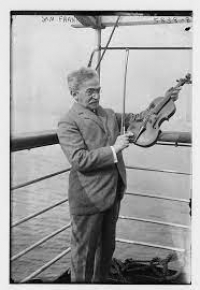
Sam Franko was an American violinist and conductor. He was the brother of violinist, conductor and concert promoter Nahan Franko. A native of New Orleans, Franko studied the violin in Europe, working with Joseph Joachim and Henri Vieuxtemps among others.
Hugo rosales
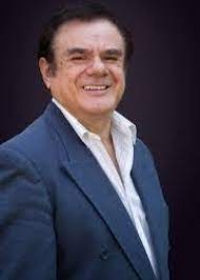
Hugo Rosales Composer Born: December 9, 1956 Died: February 18, 2021.
Felix Mendelssohn Bartholdy

Jakob Ludwig Felix Mendelssohn Bartholdy, born and widely known as Felix Mendelssohn, was a German composer, pianist, organist and conductor of the early Romantic period. Mendelssohn's compositions include symphonies, concertos, piano music and chamber music.
Felix Mendelssohn

Jakob Ludwig Felix Mendelssohn Bartholdy, born, and generally known in English-speaking countries, as Felix Mendelssohn (February 3, 1809 – November 4, 1847) was a German composer, pianist, organist and conductor of the early Romantic period.
The grandson of the philosopher Moses Mendelssohn, he was born into a notable Jewish family, although he himself was brought up initially without religion, and later as a Lutheran. He was recognized early as a musical prodigy, but his parents were cautious and did not seek to capitalise on his abilities. Indeed his father was disinclined to allow Felix to follow a musical career until it became clear that he intended to seriously dedicate himself to it.
Early success in Germany was followed by travel throughout Europe; Mendelssohn was particularly well received in England as a composer, conductor and soloist, and his ten visits there, during which many of his major works were premiered, form an important part of his adult career. His essentially conservative musical tastes however set him apart from many of his more adventurous musical contemporaries such as Liszt, Wagner and Berlioz. The Conservatory he founded at Leipzig became a bastion of this anti-radical outlook.
Mendelssohn's work includes symphonies, concerti, oratorios, piano and chamber music. He also had an important role in the revival of interest in the music of Johann Sebastian Bach. After a long period of relative denigration due to changing musical tastes and antisemitism in the late 19th and early 20th centuries, his creative originality is now being recognized and re-evaluated. He is now among the most popular composers of the Romantic era.
The grandson of the philosopher Moses Mendelssohn, he was born into a notable Jewish family, although he himself was brought up initially without religion, and later as a Lutheran. He was recognized early as a musical prodigy, but his parents were cautious and did not seek to capitalise on his abilities. Indeed his father was disinclined to allow Felix to follow a musical career until it became clear that he intended to seriously dedicate himself to it.
Early success in Germany was followed by travel throughout Europe; Mendelssohn was particularly well received in England as a composer, conductor and soloist, and his ten visits there, during which many of his major works were premiered, form an important part of his adult career. His essentially conservative musical tastes however set him apart from many of his more adventurous musical contemporaries such as Liszt, Wagner and Berlioz. The Conservatory he founded at Leipzig became a bastion of this anti-radical outlook.
Mendelssohn's work includes symphonies, concerti, oratorios, piano and chamber music. He also had an important role in the revival of interest in the music of Johann Sebastian Bach. After a long period of relative denigration due to changing musical tastes and antisemitism in the late 19th and early 20th centuries, his creative originality is now being recognized and re-evaluated. He is now among the most popular composers of the Romantic era.
Rossini

Gioachino Antonio Rossini (February 29, 1792 – November 13, 1868) was a popular Italian composer who created 39 operas as well as sacred music and chamber music. His best known works include Il barbiere di Siviglia (The Barber of Seville), La Cenerentola and Guillaume Tell (William Tell).
Rossini's most famous opera was produced on February 20, 1816 at the Teatro Argentina in Rome. The libretto by Cesare Sterbini, a version of Pierre Beaumarchais' infamous stage play Le Barbier de Séville, was the same as that already used by Giovanni Paisiello in his own Barbiere, an opera which had enjoyed European popularity for more than a quarter of a century. Much is made of how fast Rossini's opera was written, scholarship generally agreeing upon two weeks. Later in life, Rossini claimed to have written the opera in only twelve days. It was a colossal failure when it premiered as Almaviva; Paisiello’s admirers were extremely indignant, sabotaging the production by whistling and shouting during the entire first act. However, not long after the second performance, the opera became so successful that the fame of Paisiello's opera was transferred to Rossini's, to which the title The Barber of Seville passed as an inalienable heritage.
Rossini's most famous opera was produced on February 20, 1816 at the Teatro Argentina in Rome. The libretto by Cesare Sterbini, a version of Pierre Beaumarchais' infamous stage play Le Barbier de Séville, was the same as that already used by Giovanni Paisiello in his own Barbiere, an opera which had enjoyed European popularity for more than a quarter of a century. Much is made of how fast Rossini's opera was written, scholarship generally agreeing upon two weeks. Later in life, Rossini claimed to have written the opera in only twelve days. It was a colossal failure when it premiered as Almaviva; Paisiello’s admirers were extremely indignant, sabotaging the production by whistling and shouting during the entire first act. However, not long after the second performance, the opera became so successful that the fame of Paisiello's opera was transferred to Rossini's, to which the title The Barber of Seville passed as an inalienable heritage.
Daniel Simpson
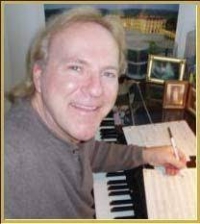
Daniel Léo Simpson, an award-winning American Composer with a flair for creating "contagious" and engaging music, specializes in unusual, interesting and dynamic works of every genre. From concerti and symphonies to commercials and film music, he is distinguishing himself as unique in his field.
Arturo Marquez
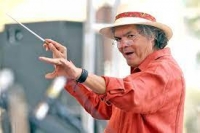
Arturo Márquez Navarro (born 20 December 1950) is a Mexican composer of orchestral music who uses musical forms and styles of his native Mexico and incorporates them into his compositions.Márquez was born in Álamos, Sonora, in 1950 where his interest in music began. Márquez is the first born of nine children of Arturo Márquez and Aurora Navarro. Márquez was the only one of the nine siblings who became a musician. Márquez's father was a mariachi musician in Mexico and later in Los Angeles and his paternal grandfather was a Mexican folk musician in the northern states of Sonora and Chihuahua. Because of Márquez's father and grandfather, he was exposed to several musical styles in his childhood, particularly Mexican "salon music" which would be the impetus for his later musical repertoire.
James Swearingen

James Swearingen is an American composer and arranger. He holds a Master’s Degree from the Ohio State University and a Bachelor's degree from Bowling Green State University and is Professor of Music Emeritus, Department Chair of Music Education at Capital University, Columbus, Ohio.
Francesco Geminiani
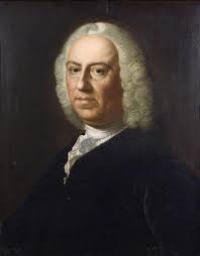
Francesco Saverio Geminiani (baptised 5 December 1687 – 17 September 1762) was an Italian violinist, composer, and music theorist. BBC Radio 3 once described him as "now largely forgotten, but in his time considered almost a musical god, deemed to be the equal of Handel and Corelli."[2
Music theory

Music theory is the study of the practices and possibilities of music. The Oxford Companion to Music describes three interrelated uses of the term "music theory"
Witold Lutosławski
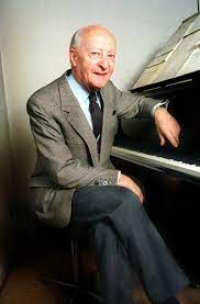
Witold Roman Lutosławski (Polish: (About this soundlisten); 25 January 1913 – 7 February 1994) was a Polish composer and conductor. Among the major composers of the 20th century, he is "generally regarded as the most significant Polish composer since Szymanowski, and possibly the greatest Polish composer since Chopin". His compositions—of which he was a notable conductor—include representatives of most traditional genres, aside from opera: symphonies, various orchestral works, chamber works, concertos, and song cycles, some of which he orchestrated. Of these, his best known works are his four symphonies, the Concerto for Orchestra (1954), the song cycle Twenty Polish Christmas Carols (1946), and a cello concerto (1970).
Mozart

Wolfgang Amadeus Mozart, full name Johann Chrysostom Wolfgang Amadeus Mozart (27 January 1756 â 5 December 1791) was a prolific and influential composer of the Classical era. His over 600 compositions include works widely acknowledged as pinnacles of symphonic, concertante, chamber, piano, operatic, and choral music. Mozart is among the most enduringly popular of classical composers, and many of his works are part of the standard concert repertoire.
Mozart's music, like Haydn's, stands as an archetypal example of the Classical style. His works spanned the period during which that style transformed from one exemplified by the style galant to one that began to incorporate some of the contrapuntal complexities of the late Baroque, complexities against which the galant style had been a reaction. Mozart's own stylistic development closely paralleled the development of the classical style as a whole. In addition, he was a versatile composer and wrote in almost every major genre, including symphony, opera, the solo concerto, chamber music including string quartet and string quintet, and the piano sonata. While none of these genres were new, the piano concerto was almost single-handedly developed and popularized by Mozart. He also wrote a great deal of religious music, including masses; and he composed many dances, divertimenti, serenades, and other forms of light entertainment.
The central traits of the classical style can be identified in Mozart's music. Clarity, balance, and transparency are hallmarks of his work.
Mozart's music, like Haydn's, stands as an archetypal example of the Classical style. His works spanned the period during which that style transformed from one exemplified by the style galant to one that began to incorporate some of the contrapuntal complexities of the late Baroque, complexities against which the galant style had been a reaction. Mozart's own stylistic development closely paralleled the development of the classical style as a whole. In addition, he was a versatile composer and wrote in almost every major genre, including symphony, opera, the solo concerto, chamber music including string quartet and string quintet, and the piano sonata. While none of these genres were new, the piano concerto was almost single-handedly developed and popularized by Mozart. He also wrote a great deal of religious music, including masses; and he composed many dances, divertimenti, serenades, and other forms of light entertainment.
The central traits of the classical style can be identified in Mozart's music. Clarity, balance, and transparency are hallmarks of his work.
Pink Floyd
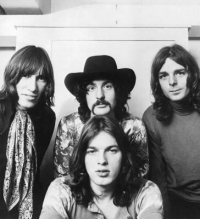
Pink Floyd are an English rock band from Cambridge. The band initially earned recognition for their psychedelic and space rock music, and, as they evolved, for their progressive rock music. Pink Floyd are known for philosophical lyrics, sonic experimentation, innovative album cover art, and elaborate live shows. One of rock music's most successful acts, the group have sold over 200 million albums worldwide including 74.5 million albums in the United States alone. Pink Floyd have influenced progressive rock artists of the 1970s such as Genesis and Yes; and contemporary artists such as Nine Inch Nails and Dream Theater.
Pink Floyd had moderate mainstream success and were one of the most popular bands in the London underground music scene in the late 1960s as a psychedelic band led by Syd Barrett. However, Barrett's erratic behaviour eventually forced his colleagues to replace him with guitarist and singer David Gilmour. After Barrett's departure, singer and bass player Roger Waters gradually became the dominant and driving force in the group by the late-1970s, until his eventual departure from the group in 1985. The band recorded several albums, achieving worldwide success with The Dark Side of the Moon (1973), Wish You Were Here (1975), Animals (1977), and The Wall (1979).
In 1985, Waters declared Pink Floyd "a spent force", but the remaining members, led by Gilmour, continued recording and touring under the name Pink Floyd. Waters sued them for the name and eventually they reached a settlement out of court, under which Gilmour, Mason and Wright would continue as Pink Floyd. They again enjoyed worldwide success with A Momentary Lapse of Reason (1987) and The Division Bell (1994). Waters performed with the band for the first time in 24 years on 2 July 2005 at the London Live 8 concert.
Pink Floyd had moderate mainstream success and were one of the most popular bands in the London underground music scene in the late 1960s as a psychedelic band led by Syd Barrett. However, Barrett's erratic behaviour eventually forced his colleagues to replace him with guitarist and singer David Gilmour. After Barrett's departure, singer and bass player Roger Waters gradually became the dominant and driving force in the group by the late-1970s, until his eventual departure from the group in 1985. The band recorded several albums, achieving worldwide success with The Dark Side of the Moon (1973), Wish You Were Here (1975), Animals (1977), and The Wall (1979).
In 1985, Waters declared Pink Floyd "a spent force", but the remaining members, led by Gilmour, continued recording and touring under the name Pink Floyd. Waters sued them for the name and eventually they reached a settlement out of court, under which Gilmour, Mason and Wright would continue as Pink Floyd. They again enjoyed worldwide success with A Momentary Lapse of Reason (1987) and The Division Bell (1994). Waters performed with the band for the first time in 24 years on 2 July 2005 at the London Live 8 concert.
Ennio Morricone
Ennio Morricone, OMRI (born November 10, 1928), is an Italian composer and conductor. He has composed and arranged scores for more than 500 film and television productions. Morricone is considered as one of the most influential film composers since the late 1950s. He is well-known for his long-term collaborations with international acclaimed directors such as Sergio Leone, Brian De Palma, Barry Levinson, and Giuseppe Tornatore.
He wrote the characteristic film scores of Leone's Spaghetti Westerns A Fistful of Dollars (1964), For a Few Dollars More (1965), The Good, the Bad and the Ugly (1966), Once Upon a Time in the West (1968), The Great Silence (1968), and My Name Is Nobody (1973). In the 80s, Morricone composed the scores for John Carpenter's horror movie The Thing (1982), Leone's Once Upon a Time in America (1984), Roland Joffé's The Mission (1986), Brian De Palma's The Untouchables (1987) and Giuseppe Tornatore's Cinema Paradiso (1988).
His more recent compositions include the scores for Oliver Stone's U Turn (1997), Tornatore's The Legend of 1900 (1998) and Malèna (2000), Mission to Mars (2000) by Brian De Palma, Fateless (2005), and Baaria - La porta del vento (2009). Ennio Morricone has won two Grammy Awards, two Golden Globes and five Anthony Asquith Awards for Film Music by BAFTA in 1979–1992. He has been nominated for five Academy Awards for Best Music, Original Score in 1979–2001. Morricone received the Honorary Academy Award in 2007 "for his magnificent and multifaceted contributions to the art of film music". He was the second composer to receive this award after its introduction in 1928.
He wrote the characteristic film scores of Leone's Spaghetti Westerns A Fistful of Dollars (1964), For a Few Dollars More (1965), The Good, the Bad and the Ugly (1966), Once Upon a Time in the West (1968), The Great Silence (1968), and My Name Is Nobody (1973). In the 80s, Morricone composed the scores for John Carpenter's horror movie The Thing (1982), Leone's Once Upon a Time in America (1984), Roland Joffé's The Mission (1986), Brian De Palma's The Untouchables (1987) and Giuseppe Tornatore's Cinema Paradiso (1988).
His more recent compositions include the scores for Oliver Stone's U Turn (1997), Tornatore's The Legend of 1900 (1998) and Malèna (2000), Mission to Mars (2000) by Brian De Palma, Fateless (2005), and Baaria - La porta del vento (2009). Ennio Morricone has won two Grammy Awards, two Golden Globes and five Anthony Asquith Awards for Film Music by BAFTA in 1979–1992. He has been nominated for five Academy Awards for Best Music, Original Score in 1979–2001. Morricone received the Honorary Academy Award in 2007 "for his magnificent and multifaceted contributions to the art of film music". He was the second composer to receive this award after its introduction in 1928.
Saint Saens

Charles-Camille Saint-Saëns (9 October 1835 – 16 December 1921) was a French composer, organist, conductor, and pianist, known especially for The Carnival of the Animals, Danse Macabre, Samson and Delilah, Havanaise, Introduction and Rondo capriccioso, and his Symphony No. 3 (Organ Symphony).
Charles Gounod

Charles-François Gounod (/ɡuːˈnoʊ/; French: ; 17 June 1818 – 17 or 18 October 1893) was a French composer, best known for his Ave Maria, based on a work by Bach, as well as his opera Faust. Another opera by Gounod that is still performed today is Roméo et Juliette.
Gounod died at Saint-Cloud in 1893, after a final revision of his twelve operas. His funeral took place ten days later at the Church of the Madeleine, with Camille Saint-Saëns playing the organ and Gabriel Fauré conducting. He was buried at the Cimetière d'Auteuil in Paris.
Gounod died at Saint-Cloud in 1893, after a final revision of his twelve operas. His funeral took place ten days later at the Church of the Madeleine, with Camille Saint-Saëns playing the organ and Gabriel Fauré conducting. He was buried at the Cimetière d'Auteuil in Paris.
Melodibog
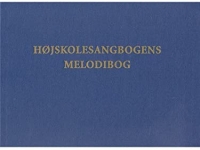
Melodibog A very nice study book containing all the notes of many songs.
King Crimson
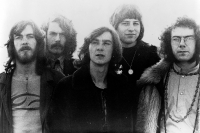
King Crimson are a progressive rock band formed in 1968 in London, England. They exerted a strong influence on the early 1970s progressive rock movement and continue to inspire subsequent generations of artists from multiple music genres as well. Guitarist and primary composer Robert Fripp, the band’s only remaining founding member, has acted as the driving creative force throughout its history. Although this causes him to be viewed as the band’s leader, Fripp himself shuns this label. King Crimson has earned a large cult following.
Sammy Fain
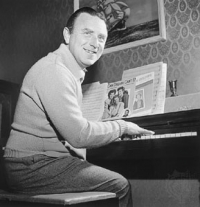
Sammy Fain (Samuel E. Feinberg, June 17, 1902 â December 6, 1989) was an American composer of popular music. He was born in New York City. In 1923, Fain appeared with Artie Dunn in a short film directed by Lee De Forest filmed in DeForest's Phonofilm sound-on-film process. In 1925, Fain left the Fain-Dunn act to devote himself full-time to composing.
Fain worked extensively in collaboration with Irving Kahal. Together they wrote classics such as "Let a Smile Be Your Umbrella". Another lyricist who collaborated with Fain was Lew Brown, with whom he wrote "That Old Feeling". His Broadway credits also include Everybody's Welcome, Right This Way, Hellzapoppin', I'll Be Seeing You, Flahooley, Ankles Aweigh, Christine and Something More.
Fain also composed music for more than 30 films in the 1930s, 40s and 50s. He was nominated for the best Original Song Oscar nine times, winning twice, with "Secret Love" from Calamity Jane in 1954 and with "Love Is a Many-Splendored Thing" from the movie of the same title in 1955. He co-wrote both songs with Paul Francis Webster, another long-time collaborator. Fain wrote the second theme to the TV series Wagon Train in 1958, which was called (Roll Along) Wagon Train. He also contributed to the song scores for the Walt Disney animated films Alice in Wonderland, Peter Pan, and The Rescuers.
In 1963, he collaborated with Harold Adamson in writing songs for the movie The Incredible Mr. Limpet, which came out in 1964, and such songs as "I wish I Were A Fish" "Be Careful How You Wish" and "Deep Rapture" enhanced his fame.
Fain died in Los Angeles, California, and is interred at Cedar Park Cemetery, in Emerson, New Jersey.
Fain worked extensively in collaboration with Irving Kahal. Together they wrote classics such as "Let a Smile Be Your Umbrella". Another lyricist who collaborated with Fain was Lew Brown, with whom he wrote "That Old Feeling". His Broadway credits also include Everybody's Welcome, Right This Way, Hellzapoppin', I'll Be Seeing You, Flahooley, Ankles Aweigh, Christine and Something More.
Fain also composed music for more than 30 films in the 1930s, 40s and 50s. He was nominated for the best Original Song Oscar nine times, winning twice, with "Secret Love" from Calamity Jane in 1954 and with "Love Is a Many-Splendored Thing" from the movie of the same title in 1955. He co-wrote both songs with Paul Francis Webster, another long-time collaborator. Fain wrote the second theme to the TV series Wagon Train in 1958, which was called (Roll Along) Wagon Train. He also contributed to the song scores for the Walt Disney animated films Alice in Wonderland, Peter Pan, and The Rescuers.
In 1963, he collaborated with Harold Adamson in writing songs for the movie The Incredible Mr. Limpet, which came out in 1964, and such songs as "I wish I Were A Fish" "Be Careful How You Wish" and "Deep Rapture" enhanced his fame.
Fain died in Los Angeles, California, and is interred at Cedar Park Cemetery, in Emerson, New Jersey.
Bobrowicz
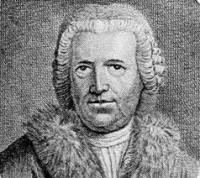
Bobrowicz was born in Kraków. He studied the guitar in Vienna with Mauro Giuliani during 1816–1819. After a short career as a solo performer on the guitar, he worked as a secretary in the senate of Kraków. From 1832, he worked as an editor for the music-publishing firm of Breitkopf & Härtel in Leipzig, Germany. Later he ran his own publishing business. As an editor he was responsible for probably hundreds of titles, published mainly in Polish.
Pyx Lax
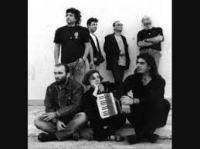
Pyx Lax is a Greek rock band. Originally formed in 1989, they released their first recording in 1990, and had a critical and commercial success in the Greek music industry for fifteen years, before being dissolved in 2004. They reunited in 2011 for a tour in honor of Manos Xydous who died in 2010.
 Sheet Music Network is a site for those who wants to access popular sheet music easily,
letting them download the sheet music for free for trial purposes.
It's completely free to download and try the listed sheet music, but you have to delete the files after 24 hours of trial.
Don't forget, if you like the piece of music you have just learned playing,
treat the artist with respect, and go buy the original sheet music.
Sheet Music Network is a site for those who wants to access popular sheet music easily,
letting them download the sheet music for free for trial purposes.
It's completely free to download and try the listed sheet music, but you have to delete the files after 24 hours of trial.
Don't forget, if you like the piece of music you have just learned playing,
treat the artist with respect, and go buy the original sheet music.
